
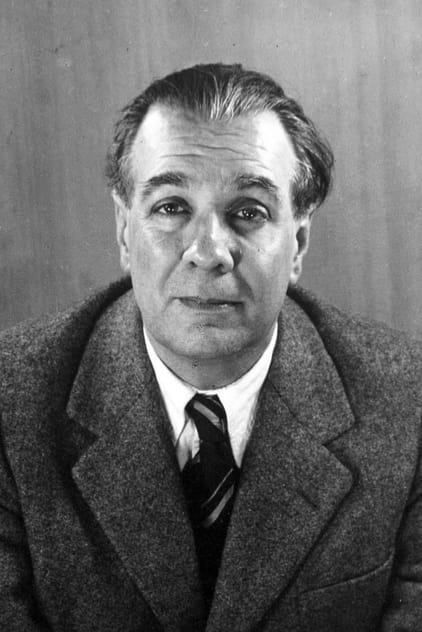
Jorge Luis Borges
Born: August 24, 1899
Died: June 14, 1986
in Buenos Aires, Argentina
Died: June 14, 1986
in Buenos Aires, Argentina
Jorge Francisco Isidoro Luis Borges Acevedo (24 August 1899 – 14 June 1986) was an Argentine short-story writer, essayist, poet and translator regarded as a key figure in Spanish-language and international literature. His best-known books, Ficciones (transl. Fictions) and El Aleph (transl. The Aleph), published in the 1940s, are collections of short stories exploring motifs such as dreams, labyrinths, chance, infinity, archives, mirrors, fictional writers and mythology. Borges's works have contributed to philosophical literature and the fantasy genre, and have had a major influence on the magic realist movement in 20th century Latin American literature.
Born in Buenos Aires, Borges later moved with his family to Switzerland in 1914, where he studied at the Collège de Genève. The family travelled widely in Europe, including Spain. On his return to Argentina in 1921, Borges began publishing his poems and essays in surrealist literary journals. He also worked as a librarian and public lecturer. In 1955, he was appointed director of the National Public Library and professor of English Literature at the University of Buenos Aires. He became completely blind by the age of 55. Scholars have suggested that his progressive blindness helped him to create innovative literary symbols through imagination. By the 1960s, his work was translated and published widely in the United States and Europe. Borges himself was fluent in several languages.
In 1961, he came to international attention when he received the first Formentor Prize, which he shared with Samuel Beckett. In 1971, he won the Jerusalem Prize. His international reputation was consolidated in the 1960s, aided by the growing number of English translations, the Latin American Boom, and by the success of García Márquez's One Hundred Years of Solitude. He dedicated his final work, The Conspirators, to the city of Geneva, Switzerland. Writer and essayist J. M. Coetzee said of him: "He, more than anyone, renovated the language of fiction and thus opened the way to a remarkable generation of Spanish-American novelists."
Jorge Francisco Isidoro Luis Borges Acevedo was born into an educated middle-class family on 24 August 1899. They were in comfortable circumstances but not wealthy enough to live in downtown Buenos Aires so the family resided in Palermo, then a poorer neighbourhood. Borges's mother, Leonor Acevedo Suárez, came from a traditional Uruguayan family of criollo (Spanish) origin. Her family had been much involved in the European settling of South America and the Argentine War of Independence, and she spoke often of their heroic actions.
His 1929 book Cuaderno San Martín includes the poem "Isidoro Acevedo", commemorating his grandfather, Isidoro de Acevedo Laprida, a soldier of the Buenos Aires Army. A descendant of the Argentine lawyer and politician Francisco Narciso de Laprida, Acevedo Laprida fought in the battles of Cepeda in 1859, Pavón in 1861, and Los Corrales in 1880. Acevedo Laprida died of pulmonary congestion in the house where his grandson Jorge Luis Borges was born. ...
Source: Article "Jorge Luis Borges" from Wikipedia in English, licensed under CC-BY-SA 3.0.
Born in Buenos Aires, Borges later moved with his family to Switzerland in 1914, where he studied at the Collège de Genève. The family travelled widely in Europe, including Spain. On his return to Argentina in 1921, Borges began publishing his poems and essays in surrealist literary journals. He also worked as a librarian and public lecturer. In 1955, he was appointed director of the National Public Library and professor of English Literature at the University of Buenos Aires. He became completely blind by the age of 55. Scholars have suggested that his progressive blindness helped him to create innovative literary symbols through imagination. By the 1960s, his work was translated and published widely in the United States and Europe. Borges himself was fluent in several languages.
In 1961, he came to international attention when he received the first Formentor Prize, which he shared with Samuel Beckett. In 1971, he won the Jerusalem Prize. His international reputation was consolidated in the 1960s, aided by the growing number of English translations, the Latin American Boom, and by the success of García Márquez's One Hundred Years of Solitude. He dedicated his final work, The Conspirators, to the city of Geneva, Switzerland. Writer and essayist J. M. Coetzee said of him: "He, more than anyone, renovated the language of fiction and thus opened the way to a remarkable generation of Spanish-American novelists."
Jorge Francisco Isidoro Luis Borges Acevedo was born into an educated middle-class family on 24 August 1899. They were in comfortable circumstances but not wealthy enough to live in downtown Buenos Aires so the family resided in Palermo, then a poorer neighbourhood. Borges's mother, Leonor Acevedo Suárez, came from a traditional Uruguayan family of criollo (Spanish) origin. Her family had been much involved in the European settling of South America and the Argentine War of Independence, and she spoke often of their heroic actions.
His 1929 book Cuaderno San Martín includes the poem "Isidoro Acevedo", commemorating his grandfather, Isidoro de Acevedo Laprida, a soldier of the Buenos Aires Army. A descendant of the Argentine lawyer and politician Francisco Narciso de Laprida, Acevedo Laprida fought in the battles of Cepeda in 1859, Pavón in 1861, and Los Corrales in 1880. Acevedo Laprida died of pulmonary congestion in the house where his grandson Jorge Luis Borges was born. ...
Source: Article "Jorge Luis Borges" from Wikipedia in English, licensed under CC-BY-SA 3.0.
Movies for Jorge Luis Borges...
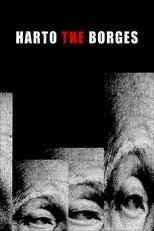
Title: Harto the Borges
Character: Self (archive footage)
Released: September 14, 2000
Type: Movie
A fragmented biography, inconclusive, partial, of the brilliant Argentinian writer Jorge Luis Borges, based on different testimonies: his links with Leonor de Acedevo —his mother— and María Kodama —his second wife—; his vast culture and devout dedication to literature, his and that of others; his country: the politicians and the disloyal military. Borges gradually builds his own impersonation of Borges.

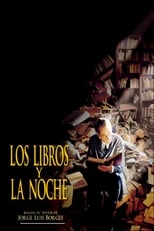
Title: The Books and the Night
Character: Himself (archive footage)
Released: April 27, 2000
Type: Movie
A dramatized approach to the Argentinian writer Jorge Luis Borges (1899-1986) through the recreation of some of his works and the staging of various aspects of his thought and his life.

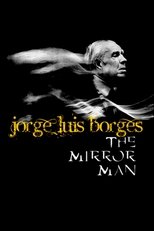
Title: Jorge Luis Borges, the Mirror Man
Character: Himself (archive footage)
Released: June 23, 1999
Type: Movie
The lifetime of the great Argentinian man of letters Jorge Luis Borges through narration and interviews of such key players in his life as Leonor de Acevedo —his mother—, María Kodama —his second wife—, and Adolfo Bioy Casares —his best friend and collaborator for decades.



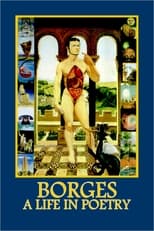
Title: Borges: A Life in Poetry
Character: Self - Writer (archive footage)
Released: January 1, 1998
Type: Movie
A peculiar portrait of the Argentinean writer Jorge Luis Borges (1899-1986) drawn by the extravagant and original look of the Spanish writer Fernando Arrabal, who establishes a bold parallelism between Borges' work and opinions and his own creations, both literary and cinematographic.

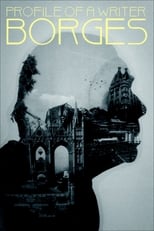
Title: Profile of a Writer: Borges
Character: Himself
Released: January 1, 1983
Type: Movie
This documentary examines Borges' extraordinary life and work, using dramatizations of his most memorable stories and rare interview footage with the author at his Buenos Aires home.

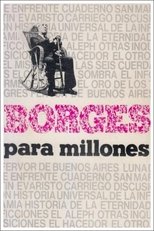
Title: Borges para millones
Character: Himself
Released: September 14, 1978
Type: Movie
The life and work of Argentinian writer Jorge Luis Borges, a long interview, fragments of some of his most significant verses and dramatizations of some of his stories. Borges for everyone.


Title: Firing Line with William F. Buckley Jr.: Borges: South America's Titan
Released: February 1, 1977
Type: Movie
Jorge Luis Borges and William F. Buckley interview

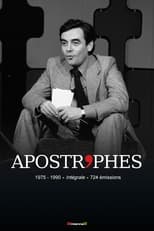
Title: Apostrophes
Character: Self
Released: January 10, 1975
Type: TV
Apostrophes was a live, weekly, literary, prime-time, talk show on French television created and hosted by Bernard Pivot. It ran for fifteen years (724 episodes) from January 10, 1975, to June 22, 1990, and was one of the most watched shows on French television (around 6 million regular viewers). It was broadcast on Friday nights on the channel France 2 (which was called "Antenne 2" from 1975 to 1992). The hourlong show was devoted to books, authors and literature. The format varied between one-on-one interviews with a single author and open discussions between four or five authors.

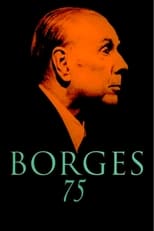
Title: Borges 75
Released: January 1, 1975
Type: Movie
A tour for Buenos Aires with Jorge Luis Borges, who reflects on different topics.
